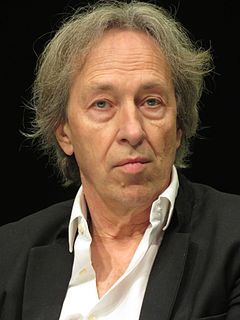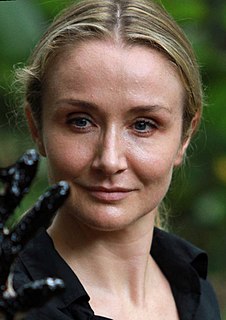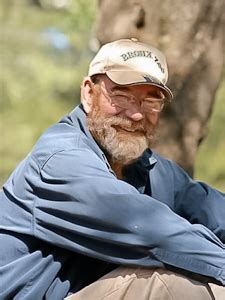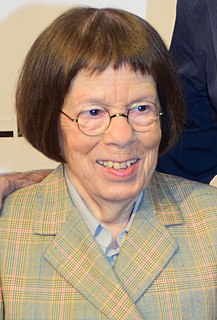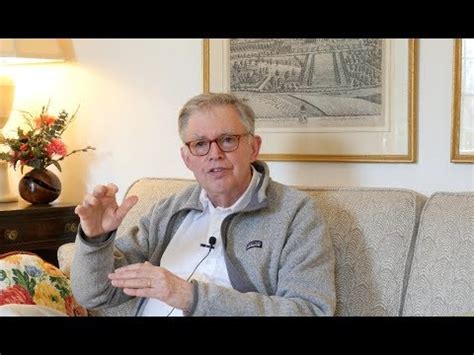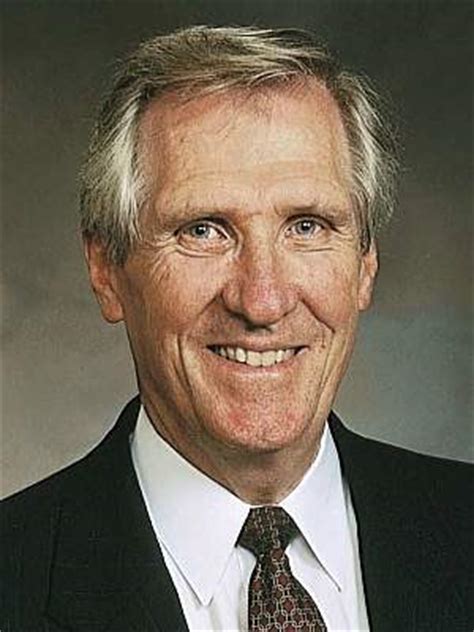A Quote by Sebastian Junger
The most profound question is, "What would I risk dying for?" The natural answer is "for my family." But for most of history, we didn't live in families. We lived in small communities that gave us our sense of safety and place in the world, so the natural answer would be "for my people." The blessing and the tragedy of modern life is that we don't need our community to survive anymore. When we lose that idea, we lose a sense of who we are.
Quote Topics
Answer
Anymore
Blessing
Communities
Community
Dying
Families
Family
Gave
History
Idea
Life
Life Is
Live
Lived
Lose
Modern
Modern Life
Most
My Family
Natural
Need
Our
Our Community
People
Place
Profound
Question
Risk
Safety
Sense
Small
Small Communities
Survive
To Survive
Tragedy
Us
World
Would
Would Be
Related Quotes
Ultimately, 'how's it going?' is the most futile and the most profound of questions. To answer it precisely, one would have to make a scrupulous inventory of one's psyche, considering each aspect in detail. No matter: we have to say 'fine' out of politeness and civility and change the subject, or else ruminate the question during our whole lives and reserve our reply for afterward.
Why do we so mindlessly abuse our planet, our only home? The answer to that lies in each of us. Therefore, we will strive to bring about understanding that we are--each one of us--responsible for more than just ourselves, our family, our football team, our country, or our own kind; that there is more to life than just these things. That each one of us must also bring the natural world back into its proper place in our lives, and realize that doing so is not some lofty ideal but a vital part of our personal survival.
I was a very determined kid. I couldn't imagine any other life for myself. This happens to kids who are different in any way. How am I going to make a life? Who am I going to be when I grow up? Will there be a place for me in the world? Acting gave me a sense of purpose, but it also gave me a sense that I would survive, that I would find my place.
Perhaps one of the most powerful keys to determining our experience of the months ahead comes from a shift in thinking that invites us beyond asking, 'What can I get from the world that exists,' to asking, 'What can I offer to the world that is awakening?' The way we answer this question as individuals becomes our collective answer to what comes next.
People need immediate places to refresh, reinvent themselves. Our surroundings built and natural alike, have an immediate and a continuing effect on the way we feel and act, and on our health and intelligence. These places have an impact on our sense of self, our sense of safety, the kind of work we get done, the ways we interact with other people, even our ability to function as citizens in a democracy. In short, the places where we spend our time affect the people we are and can become.
To be a scientist you have to be willing to live with uncertainty for a long time. Research scientists begin with a question and they take a decade or two to find an answer. Then the answer they get may not even answer the question they thought it would. You have to have a supple enough mind to be open to the possibility that the answer sometimes precedes the question itself.
Our Heavenly Father has organized us into families for the purpose of helping us successfully meet the trials and challenges of life. The home also exists to bless us with the joys and privileges of family associations. Our family is our safety place, our support network, our sanctuary, and our salvation.
That is why we need to travel. If we don't offer ourself to the unknown, our senses dull. Our world becomes small and we lose our sense of wonder. Our eyes don't lift to the horizon; our ears don't hear the sounds around us. The edge is off our experience, and we pass our days in a routine that is both comfortable and limiting. We wake up one day and find that we have lost our dreams in order to protect our days.
... our purpose in founding our state was not to promote the happiness of a single class, but, so far as possible, of the whole community. Our idea was that we were most likely to justice in such a community, and so be able to decide the question we are trying to answer. We are therefore at the moment trying to construct what we think is a happy community by securing the happiness not of a select minority, but of a whole.
Americans across our country are feeling a sense of helplessness, of uncertainty and of fear. These feelings are understandable and they are justified. But the answer must not be violence. The answer is never violence. Rather, the answer - our answer, all our answer - must be action. Calm, peaceful, collaborative and determined action. We must continue working to build trust between communities and law enforcement. We must continue working to guarantee every person in this country equal justice under the law.
I feel that we have, as Mexicans, two things: one, a natural distrust of institutions. I hate organised religion, I hate organised politics, I hate the idea of the military and the police. Because we grew up distrusting all these sacred institutions, the only thing you have left is a vague, national sense of impending doom. Why do we drink and how are we so merry? Because we know that pretty soon, our time's up. There is a sense of fatality that makes us pretty chirpy people. You try to live. The only reason that dying is important is that it gives life sense.
Crisis or transition of any kind reminds us of what matters most. In the routine of life, we often take our families-our parents and children and siblings-for granted. But in times of danger and need and change, there is no question that what we care about most is our families! It will be even more so when we leave this life and enter into the spirit world. Surely the first people we will seek to find there will be father, mother, spouse, children, and siblings.
There are two tests that we [writers] have for all of our writing: So What? and Who Cares? There is an answer to both. The answer to Who Cares is that a reader cares, if the writing is good. The answer to So What is that these ideas give us completely new understanding, change our sense of who we [people] are and why we're here [on this planet].


